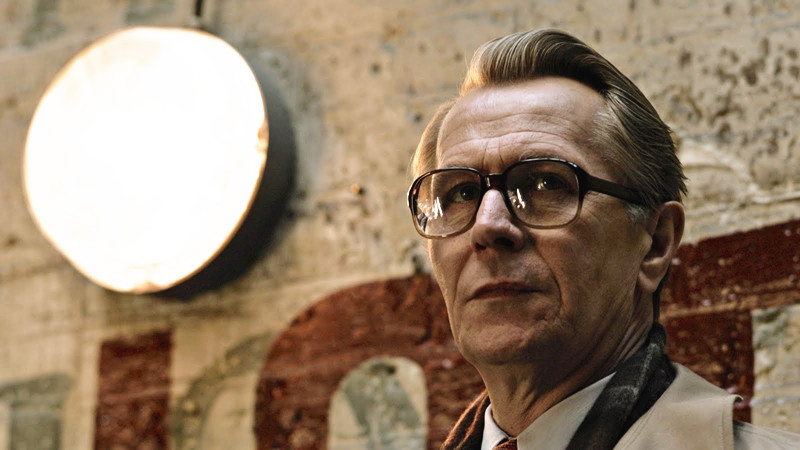
Genre writers of any kind always have a higher hill to climb in proving their literary worth – to enter the proverbial pantheon of great authors, studied and appreciated worldwide for their artistry. It’s a testament to his monumental talent that none question John le Carre’s place in that canon: his dominion of both language and narrative are on par with any Pulitzer or Booker winner from the past 60 years, something both serious critics and the public at large can agree on.
His death, therefore, marks the end of an era for British literature – and for anyone who considers themselves an appreciator of the art of writing, whether a fan of spy fiction or not. Unquestionably a sad occasion, but long devoted followers of Le Carre’s work can take solace in the certainty that his legacy will live on – not only on the page, but in cinema as well, given the wealth of adaptations his work has received over the years. As a homage to an iconic and important author, here’s a ranking of all movies adapted from his novels.
(Note: the only movie missing is George Roy Hill’s “The Little Drummer Girl,” which is unfortunately nearly impossible to find and the only one the author of the list couldn’t watch).
9. The Deadly Affair (1966)
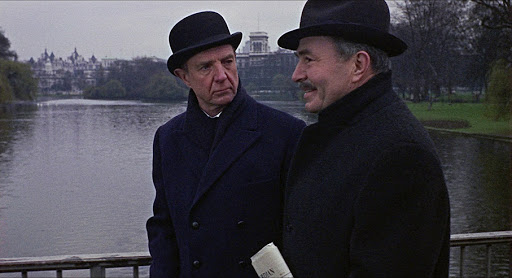
Based on Le Carre’s first published novel, “The Deadly Affair” demonstrates the writer’s pubescent style, with its complex plotting, melancholic tone, and detailed observation of the monotony of spycraft – but it’s also missing the refinement he would later bring to all of those elements.
Directed by Sidney Lumet, the story, though concerning espionage, mostly unfolds like a regular murder mystery: MI5 agent Charles Dobbs (a George Smiley stand in, since the studio couldn’t get the rights to the character’s name) is tasked with investigating a former communist who now works in the Foreign Office. When the man dies of apparent suicide, Dobbs becomes suspicious and sets out to discover the real circumstances that led to his death.
Nothing directed by an all-time great director like Lumet could ever be completely without merit and “The Deadly Affair” is no exception: it does feature several great performances and a killer Quincy Jones score. But it’s also a fairly dull movie, from the greyness of the color palette to the leisurely pace that eludes intrigue in favor of slowness – all of which amounts to a subpar Le Carre adaptation.
8. The Tailor of Panama (2001)
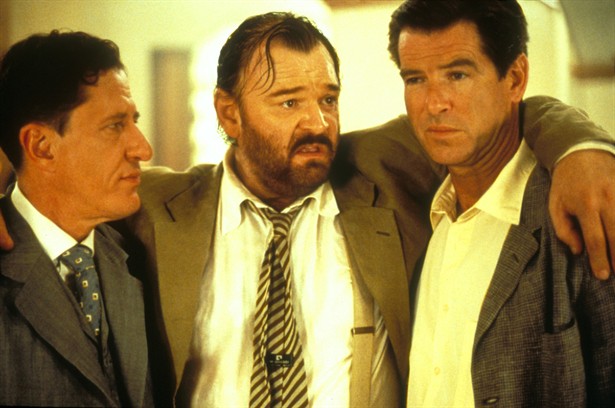
Though he was a genre writer through and through, Le Carre was as serious about the art of writing as any other literary giant of the mid-20th century – but, on occasion, he would also stretch his funny muscles by venturing into satirical territory.
“The Tailor of Panama” is one such case. Inspired by Graham Greene’s “Our Man In Havana,” it’s a cynical and absurd story of a spy coercing a former con and now tailor in (you guessed it) Panama into helping him in an operation with the goal of overthrowing the Panamanian government to retain British interests in the region – and, in the process, embezzle some money, too.
As can be inferred from the above description, this story is a scathing satire of imperialism, and it demands a very specific tone of irreverent indignation (think “Dr. Strangelove”) that the usually dead serious director John Boorman (of “Deliverance” and “Point Blank” fame) struggles to convey as sophisticatedly as Le Carre does in the book, over-relying on the performances for comedy. That, coupled with an unfortunate lack of visual acumen, makes “The Tailor of Panama” an entertaining but far from great movie.
7. The Looking Glass War (1970)
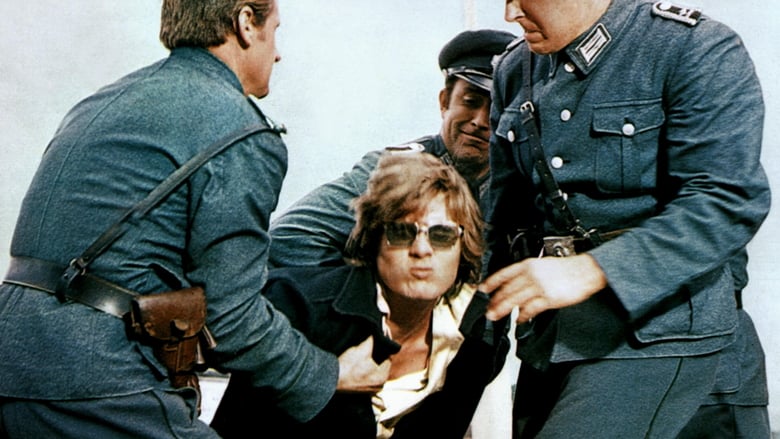
Poorly received at the time of its release both by critics and audiences, “The Looking Glass War” is now an obscure and extremely difficult to find movie – but for Le Carre completists it’s definitely worth a look.
Based on another one of the writer’s largely comical and satirical novels, the narrative is meant to ridicule the very institutions that normal spy movies usually uphold, telling the story of a spectacularly failed mission, when MI6 sends a Polish defector to East Germany to replace one of their dead agents in collecting data about a missile program. From then on, the incompetence of British officers leads to more and more disastrous consequences.
That’s one reason that maybe helps to explain the ill reception both the novel and movie received: Le Carre wrote the story as direct rebuttal to the public’s perception from his first few novels that spies are sophisticated, intelligent people – he wanted to show just how susceptible to mistakes they are and how dangerous it is to trust those institutions. The movie itself is nothing particularly special, but it does manage to preserve this message and tone of the novel and convey it in a cinematic way, which is the reason why it fares slightly better than “The Tailor of Panama.”
6. Our Kind of Traitor (2016)
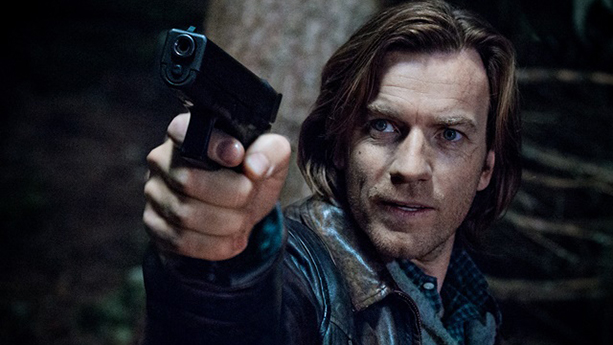
This film is a perfectly fine little thriller that, while not particularly exceptional in any way, is still engaging and filled with very good character work – and only finds itself toward the bottom of the list because it pales in comparison to other Le Carre adaptations.
Based on one of the writer’s final novels, “Our Kind of Traitor” concerns a timid professor and his wife who meet and befriend a Russian mobster during a romantic holiday. Things get complicated when the mobster reveals he’s afraid for his family’s life and wishes to defect to England – and, for that, he needs the professor’s help.
“Our Kind of Traitor” is light on the convoluted plotting and detailed intrigue that usually make for a Le Carre story, focusing on character relationships and a very streamlined conflict, which works very well for a movie of essentially modest ambitions. The true MVP is ace cinematographer Newton Thomas Sigel, who makes every shot of this film much more gorgeous than it had any right to be.